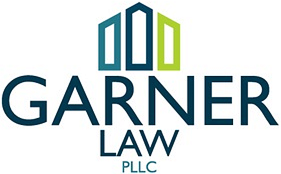 Garner Law PLLC provides comprehensive estate planning services to keep you from worrying about your legacy and the future of your family. Estate Planning allows you to appoint trusted fiduciaries to manage your estate, achieve maximum savings of administrative costs and taxes, dispose of your estate according to your wishes and avoid family disputes. All individuals should have valid estate plans, and at Garner Law PLLC, we help you decide which types of estate planning tools work best for your particular circumstances. Below is an overview of the documents we can prepare for you.
Garner Law PLLC provides comprehensive estate planning services to keep you from worrying about your legacy and the future of your family. Estate Planning allows you to appoint trusted fiduciaries to manage your estate, achieve maximum savings of administrative costs and taxes, dispose of your estate according to your wishes and avoid family disputes. All individuals should have valid estate plans, and at Garner Law PLLC, we help you decide which types of estate planning tools work best for your particular circumstances. Below is an overview of the documents we can prepare for you.
Last Will and Testament
A Last Will and Testament is one of the most important legal documents a person can create during his or her lifetime. A Will allows you to designate how you want your estate (property) to be distributed upon your death. If a person dies without a Will, he/she is said to have died “intestate” and state laws will determine how and to whom the person’s assets will be distributed. A Will is also used to designate a guardian for any minor children. Wills must meet the legal requirements set forth by the state in order for it to be valid. Oral wills are not valid unless they are made by a military service member or mariner at sea. Let Garner Law PLLC draft a legally valid Will for you today!
Living Will
A living will is not at all like the Last Will and Testament that people use to leave property at their death. A living will, also called a directive to physicians or advance directive, is a document that lets you state your wishes for medical care, in case you become unable to communicate your decisions. Any authority granted by a living will ends when the person who made the document dies. However, it can give invaluable guidance to family members and healthcare professionals. Without a document expressing those wishes, family members and doctors are left to guess what a seriously ill person would prefer in terms of treatment. With a living will, you are the one who determines if you want every life-saving measure to be taken or prefer that no life-prolonging measures are implemented. Having a living will can prevent painful disputes, which occasionally make it all the way to a courtroom.
Healthcare Power of Attorney
Living wills are often used with a document called a healthcare power of attorney. This document is also referred to as a health care proxy, appointment of a health care agent or durable power of attorney for health care. A health care power of attorney delegates a spouse, trusted family member or friend to make health care decisions for you if you are unable to do so. The appointed agent carries out your wishes that are written down in a living will or medical directive.
Durable Power of Attorney
A power of attorney (POA) is similar to a healthcare power of attorney, except it appoints someone to represent you or act on your behalf regarding your financial affairs.
Irrevocable Trusts
An irrevocable trust allows a grantor to transfer assets into the trust, effectively removing all of his/her rights of ownership to the assets in the trust. The benefit of this type of trust is the grantor is relieved of the tax liability on the income generated by the assets in the trust or helps you to qualify for certain long term government benefits, such as veteran’s benefits or Medicaid. An irrevocable trust can also be used to protect assets from creditors, protect your children against the loss of inheritance in a messy divorce, guarantee funds for your grandchildren’s college education, create lifetime income for a disabled child, or allow you to leave a gift to a child who may not handle money responsibly. Once assets are transferred to the trust, they no longer belong to the grantor, rather, they become the legal property of the trustee to hold for the beneficiaries. An irrevocable trust cannot be modified or terminated without the permission of the beneficiary. However, you can name the trustee and beneficiaries, and determine how the funds in the trust are to be used.
Revocable Trusts
A revocable trust is also known as a living trust, and establishes a way to manage your assets during your lifetime with easy transfer to your heirs upon your death. These trusts can be revoked or amended at any time but do not help to avoid estate tax because your power to revoke or amend them allows the assets to continue to be included in your estate. However, a revocable trust helps to avoid probate. Probate can be expensive and time consuming, but property left through a living trust can pass to beneficiaries without going through the probate process.
Contact Garner Law PLLC to make sure you and your family members have these crucial documents in place. We serve Washington DC and Maryland, including Prince Georges County, Calvert County, Montgomery County, Charles County, Anne Arundel County and surrounding areas.




